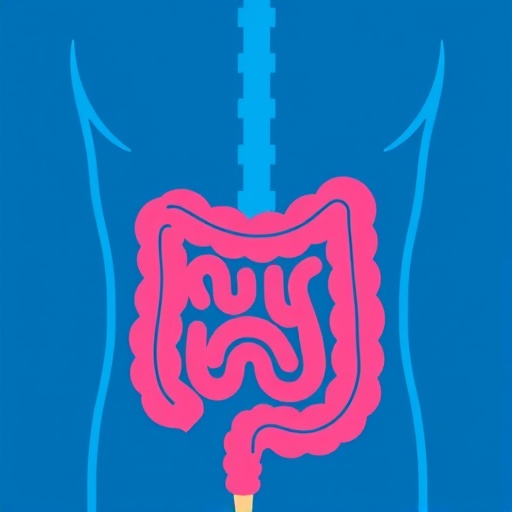A groundbreaking study led by UCLA researchers has unveiled the most effective strategy to boost colorectal cancer screening rates among adults aged 45 to 49, a demographic recently included in national screening guidelines. Their research demonstrates that proactively mailing stool-based screening tests directly to patients’ homes can substantially increase engagement compared to other outreach methods that require patients to actively opt in. This important finding paves the way for more efficient, scalable cancer prevention strategies aimed at younger adults, who have historically shown low participation in colorectal cancer screening programs.
Colorectal cancer, long recognized as a leading cause of cancer mortality, has recently shown alarming incidence rates among younger adults, particularly those in their 40s. In response to this trend, the U.S. Preventive Services Task Force lowered the recommended screening age from 50 to 45 years in 2021. Despite this change, less than 2% of this newly eligible age group have undergone recommended screening within the first 20 months—a statistic highlighting a significant gap in public health outreach and patient engagement.
The UCLA study, published in the prestigious journal JAMA, involved an extensive analysis of four distinct outreach strategies aimed at encouraging colorectal cancer screening participation in a cohort of over 20,000 patients considered at average risk. Researchers leveraged UCLA Health’s electronic patient portal to deliver messaging and testing options, systematically comparing the relative effectiveness of each approach. The four tested strategies ranged from inviting patients to opt into stool-based or colonoscopy screenings separately or with a choice, to the direct mailing of fecal immunochemical test (FIT) kits without requiring prior consent or selection.
Results strikingly favored the automated mailing strategy; when patients were sent FIT kits directly, the screening completion rate soared to approximately 26.2%, significantly outperforming opt-in methods that hovered between 14.5% and 17.4% completion rates. This evidence underscores a critical behavioral insight: eliminating barriers to screening—such as the need for patient initiation or decision-making—can significantly enhance adherence, especially among younger populations who may not yet appreciate their cancer risk.
A key advantage of stool-based tests like FIT lies in their non-invasive, convenient nature, allowing patients to collect samples at home without the need for clinical appointments. Despite the simplicity of this method, follow-up after abnormal FIT results remains pivotal. Impressively, the study found that over 70% of participants with abnormal initial tests underwent appropriate diagnostic colonoscopies within six months, a higher adherence rate than commonly reported in such screening programs. This indicates that integrated outreach and follow-up protocols can effectively bridge the critical gap between initial screening and necessary diagnostic evaluation.
The implications of these findings extend beyond clinical outcomes, highlighting the potential of automated outreach in resource management. Dr. Folasade May, the study’s senior author and an associate professor of medicine at UCLA, emphasized that this approach requires minimal effort from healthcare providers while achieving substantial public health gains. Within just six months, over 3,800 patients were screened, representing thousands of opportunities for early cancer detection or prevention in what is traditionally a difficult-to-reach demographic.
While the study advances our understanding of effective colorectal cancer screening campaigns, it also acknowledges the overall screening uptake remains modest. Even with automated FIT kit mailing, only about a quarter of eligible patients completed screening. This suggests a need for further refinement and tailoring of outreach methods, potentially incorporating behavioral nudges, personalized messaging, or integration with digital health tools to maximize engagement.
The multidisciplinary research team combined expertise from gastroenterology, oncology, and organizational management, reflecting the complex interplay of medical, behavioral, and logistical factors influencing screening success. Their collaborative work underscores the importance of interdisciplinary approaches to public health challenges, combining clinical insights with strategic outreach design to optimize interventions.
As colorectal cancer incidence continues to rise among younger adults, actionable insights like these are urgent. Understanding the nuances of patient behavior and healthcare delivery mechanisms will be vital in designing interventions that not only increase screening rates but also ensure timely diagnostic follow-up and treatment, ultimately reducing morbidity and mortality from this preventable disease.
In the broader context of cancer prevention, these findings parallel growing evidence supporting low-barrier, patient-centered strategies to improve screening adherence across various malignancies. The study’s success with automated FIT mailing contributes to a paradigm shift toward proactive, population-level preventive care, leveraging technology and system design to overcome traditional obstacles in cancer screening.
Future research directions include exploring demographic factors influencing screening uptake, refining communication channels to reach diverse populations, and integrating automated screening strategies within existing healthcare infrastructures at scale. Such efforts will be essential to realize the full potential of early detection programs and to extend these benefits equitably across all segments of the population.
This research not only provides a data-driven roadmap for colorectal cancer screening in younger adults but also reinforces the broader principle that reducing patient burden and simplifying access are paramount in enhancing preventive health behaviors. As the medical community grapples with rising colorectal cancer rates in a younger cohort, these insights form a crucial foundation for public health policy and clinical practice transformation.
Subject of Research:
Colorectal cancer screening strategies in adults aged 45 to 49.
Article Title:
Not explicitly provided in the source content.
News Publication Date:
Not specified in the source content.
Web References:
https://doi.org/10.1001/jama.2025.12049
References:
The primary reference is the study published in JAMA as cited above.
Image Credits:
Not provided in the source content.
Keywords:
Colorectal cancer, colon cancer, cancer screening, stool-based test, FIT kit, colorectal cancer prevention, cancer screening strategies, early cancer detection, public health intervention, patient outreach, cancer epidemiology.




